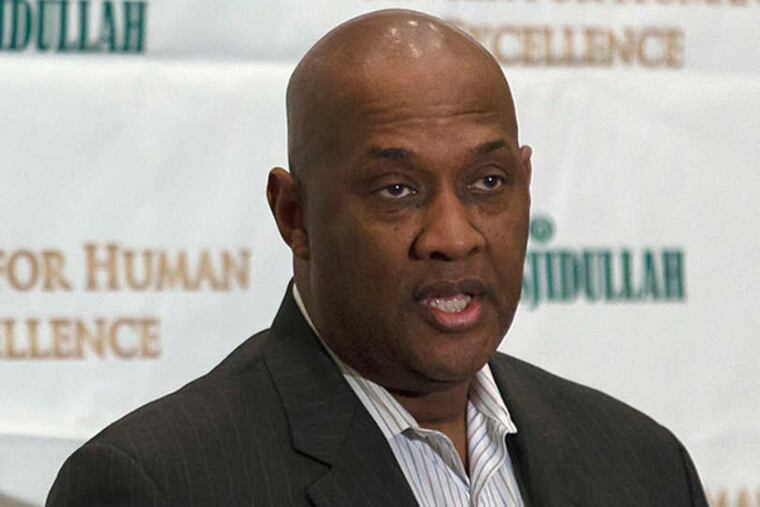Let community banks and nonprofit lenders give small businesses emergency coronavirus PPP loans, Pa. congressman says
Community banks and nonprofit, mission-based lenders were excluded from the Paycheck Protection Program — and Rep. Dwight Evans wants to change that.

When the Small Business Administration rolled out emergency coronavirus relief loans, most big banks were automatically eligible to participate as lenders. But community banks and nonprofit, mission-based lenders were excluded — and U.S. Rep. Dwight Evans (D., Pa.) wants to change that.
The Paycheck Protection Program, or PPP, was a $350 billion loan program tapped by small businesses around the country. It quickly ran out of money, and small businesses are seeking more funding.
“We are asking congressional leadership to mandate that lenders prioritize PPP loans for small businesses owned by minorities, women, veterans, and those in under-served and rural markets in the next stimulus package," Evans wrote in a letter released Friday. "We are also asking that leadership set aside part of the PPP funding for smaller community lenders, such as credit unions and CDFIs,” or community development financial institutions.
2/ I recently led a letter, joined by 71 colleagues, urging congressional leadership to have PPP funding prioritized for businesses owned by minorities, women, veterans & those in underserved & rural markets; and pic.twitter.com/Lg5qGJr0zI
— Dwight Evans (@RepDwightEvans) April 16, 2020
PPP provides forgivable loans for small businesses to keep workers employed. SBA will forgive the loans if all employees are kept on the payroll for eight weeks and the money is used for payroll, rent, mortgage interest, or utilities. Many female- and minority-owned businesses have struggled getting such loans.
“I recently led a letter, joined by 71 colleagues, urging congressional leadership to have PPP funding prioritized for businesses owned by minorities, women, veterans & those in underserved rural markets,” Evans, one of Philadephia’s three House members, wrote on Twitter.
Maura Shenker, director of Temple’s Small Business Development Center, noted that “community development financial institutions are already SBA micro-lenders, and they have the relationships with the smaller, underserved minority and disadvantaged businesses.
“But they aren’t allowed to be PPP lenders," she said. “That was a mistake, and now we’re seeing the consequences of that decision.”
The overarching coronavirus economic rescue package said the SBA should provide guidance to PPP lenders and agents to “ensure that the processing and disbursement of covered loans prioritizes small-business concerns,” Evans wrote. But the SBA still has not issued this guidance to lenders, he said.
Only a few CDFIs have been able to lend money in Philadelphia to women and minorities — among them the Women’s Opportunity Resource Center, according to its director, Lynne Cutler.
“WORC started making PPP loans last week," Cutler said. “We were in the process of entering more when it ran out of funds.”
“We are reaching women and minority businesses; it is a lifeline for them," she added. “More mission-based lenders should be able to do these. We know our customers and can reach small businesses.”
Among WORC recipients were female and minority business owners who received PPP funding: Amber Cureton, owner of Perfect Choice Cleaning Services; Danielle Ruttenberg, co-owner with Rebecca Davies of Remark Glass in South Philadelphia; Shasnettay Warner, owner of Tiny Tech Learning Lab, a day-care center in West Oak Lane; Shanthy Brown, who owns Brown Eye Care, an optometry clinic in Germantown; and Tyisha Beckham, owner of Noire LLC hair salon in South Philadelphia.
» HELP US REPORT: Are you a health care worker, medical provider, government worker, patient, frontline worker or other expert? We want to hear from you.